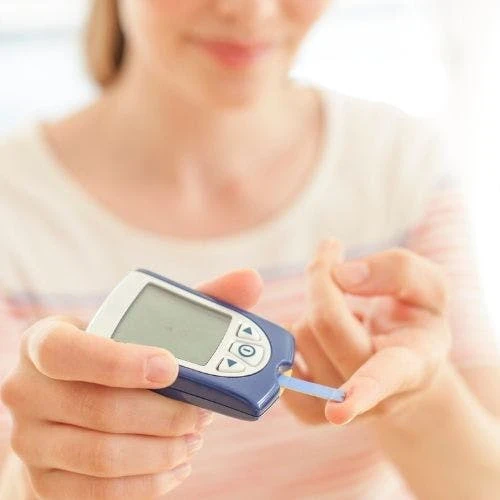3 Hour Glucose Test In Pregnancy
The 3-hour glucose tolerance test is a diagnostic test used to determine the presence of gestational diabetes in pregnant women. The three-hour test is usually done as a second test after a patient has failed a one-hour glucose challenge test.
ACOG Recommendations On 3-Hour Glucose Test
The American College Of Obstetricians And Gynecologists recommends that the one-hour glucose test for gestational diabetes is performed between 24-28 weeks of pregnancy. If you fail the one hour test, you are brought back for the 3 hour glucose test. The test measures the body’s response to sugar (glucose) by analyzing blood sugar levels at different intervals after consuming a concentrated glucose solution. It helps your healthcare professional assess how efficiently you are processing glucose. If you fail it then you are diagnosed with gestational diabetes.
If you have had a diagnosis of gestational diabetes in a previous pregnancy, have a large for gestational age baby in a previous pregnancy, are obese, or have a twin pregnancy, then you will be tested earlier in your pregnancy.
Understanding the normal range values for the 3-hour glucose tolerance test is important, as early diagnosis and proper management can prevent or delay complications associated with these conditions. By monitoring and adjusting blood sugar levels accordingly, individuals can maintain healthier lifestyles and minimize the risk of long-term health issues.
Steps Of Three-Hour Glucose Tolerance Test
Prior to the test, you must fast for at least 8-12 hours, consuming only small sips of water during this time. First, a fasting blood draw is done. Then, you will be asked to drink a beverage containing glucose within 10 minutes or less.
Do Not Try To Cheat The Pregnancy Glucose Test!
During the test your blood will be drawn at 1 hour, 2 hours, and 3 hours after ingestion. During this time, you should avoid eating, smoking, and exercising until after your last blood draw. If you are walking around during the test, this may falsely lower high glucose levels. You should limit activity during the three-hour glucose test. Do not try to cheat the test because you do not want gestational diabetes to be missed.
3 Hour Glucose Test Detailed Steps
- Fasting: The patient must fast for at least 8 hours prior to the test, ensuring that no food or drink is consumed during this time.
- Initial Blood Draw: A blood test is done at the beginning of the test to measure the fasting glucose level.
- Glucose Consumption: The patient then consumes a drink with 100 grams of glucose. This must be drunk within 10 minutes or less.
- Blood Draws: Additional blood samples are taken at 1 hour, 2 hours, and 3 hours after consuming the glucose drink.
Based on the blood glucose levels at each time point, a diagnosis of gestational diabetes can be made.
Fasting Requirements For 3 Hour Glucose Test
Before taking the 3-Hour glucose tolerance test, it is essential to follow fasting requirements. Patients are advised not to eat, drink, smoke, or exercise for at least 8-12 hours before the first blood sample is taken. Sips of plain water are allowed during the fasting period, but no other beverages should be consumed.
Pre Glucose Test Healthy Diet
Maintaining a normal diet prior to the day of the test is crucial for accurate results. Patients should eat their regular meals and avoid any significant changes in food consumption. This helps ensure that the body’s glucose levels are not artificially impacted by sudden dietary adjustments. Trying to “trick” the test is not only unlikely to work but it is also dangerous for pregnant people who may have gestational diabetes to have that diagnosis missed.
What To Wear To 3 Hour Glucose Test
As the test may take up to four hours to complete, it is recommended that patients wear comfortable clothing to the testing facility. Loose, non-restrictive garments will allow for easy access to the arm for blood draws and facilitate a more relaxed experience during the testing process.
Side Effects Of 3 Hour Glucose Test
Some people may feel sick after or during the 3-Hour Glucose Tolerance Test. These may include:
- Nausea
- Dizziness
- Headache
- Hypoglycemia following the test due to an insulin surge
These side effects are generally not severe and subside after the test is completed. If you do vomit after you consume the glucose drink you will likely need to return on another day to repeat the test due to the high likelihood of inaccurate results.
Normal Result Of 3 Hour Glucose Test
Related: Round Ligament Pain In Pregnancy
Interpreting the 3-hour glucose test requires understanding what normal blood sugar levels are. For a healthy individual, normal results are as follows:
– Fasting: less than 95 mg/dL (94 or lower)
– 1 hour: less than 180 mg/dL (179 or lower)
– 2 hours: less than 155 mg/dL (154 or lower)
– 3 hours: less than 140 mg/dL (139 or lower)
Abnormal Results Of 3 Hour Glucose Test
When interpreting test results, it is essential to be aware of what constitutes abnormal results, which could indicate a potential health issue. Specifically, diagnosing gestational diabetes from the oral glucose tolerance test requires two or more of the following results:
- Fasting: 95 mg/dL or above
- 1 hour: 180 mg/dL or above
- 2 hours: 155 mg/dL or above
- 3 hours: 140 mg/dL or above
When two or more blood sugar values equal or exceed the limits mentioned above, This is the requirement to diagnose gestational diabetes. The next step usually involves going to a nutritionist who specializes in gestational diabetic teaching and to learn how to test your blood glucose levels.
Potential Causes of Abnormal Results
There are several factors that can contribute to abnormal glucose tolerance results. Potential causes include, but are not limited to:
- Insulin resistance: The body’s cells may not respond appropriately to insulin, causing blood sugar levels to rise.
- Insufficient insulin production: The pancreas might not produce enough insulin, resulting in elevated blood sugar levels.
- Genetic factors: Family history and genetic predisposition can play a role in the development of diabetes.
- Lifestyle factors: Poor diet, lack of physical activity, and obesity can increase the risk of gestational diabetes in pregnant women.
Managing Gestational Diabetes
Gestational diabetes is a condition that affects some pregnant women and may cause harm to both the mother and baby if left untreated. Proper management of gestational diabetes can help reduce risks and ensure a healthy pregnancy.
Dietary Changes
Making healthier food choices is one of the key factors in managing gestational diabetes. A well-balanced diet should include the right amount of protein, carbohydrates, fats, vitamins, and minerals. High-fiber foods, such as fresh fruits, vegetables, and whole grains, are also essential in controlling blood glucose levels. It is also important to avoid or limit the consumption of high-sugar and high-fat foods.
Physical Activity
Staying active during pregnancy can help control blood sugar levels. Pregnant women with gestational diabetes are advised to engage in regular, moderate-intensity exercise, such as walking, swimming, or prenatal yoga. Walking briskly after meals can help to reduce blood sugar spikes. This is why it is important to not walk in the doctor’s office during the 3 hour glucose test as it doesn’t allow the doctor to assess how your body can handle glucose without any physical activity. It is important to consult with a healthcare provider to determine the appropriate level and type of physical activity for each individual case.
Monitoring Blood Glucose Levels
Regular monitoring of blood glucose levels is essential in managing gestational diabetes. This can be done through the use of a blood glucose meter or glucometer to measure blood sugar levels at specific times throughout the day. Healthcare providers will typically recommend testing multiple times daily to ensure blood sugar levels are within the desired range. You will also need to have a postpartum glucose test.
Medical Intervention
In some cases, dietary and lifestyle changes may not be sufficient to control gestational diabetes, and medical intervention may be necessary. This could involve the use of insulin injections or other medications to help control blood sugar levels. It is essential always to follow the medical advice and treatment plan provided by the healthcare provider.
By implementing dietary changes, physical activity, regular blood glucose monitoring, and following the medical intervention as needed, women with gestational diabetes can improve their chances of a healthy and complication-free pregnancy.
3 Hour Glucose Test: Summary
The one hour glucose test and subsequent 3 hour glucose tolerance test are done between 24-28 weeks gestation. This diagnostic test is an important tool for seeing who is at a higher risk of gestational diabetes. During the duration of the test, patients will be fasting, consuming a glucose-rich drink, and then having blood drawn at specific intervals to monitor blood sugar levels. By evaluating these results, healthcare practitioners can identify abnormal glucose levels and provide appropriate interventions if necessary.
Patients undergoing the test should adhere to the guidelines provided, such as fasting before the test and refraining from eating, smoking, or exercising during the test. This ensures accurate results while minimizing any undue stress on the body. It is important to adhere to guidelines so that your doctor can properly assess how insulin works in your body when you are exposed to a high level of glucose.
Regular glucose testing is crucial for individuals at risk of developing diabetes. Early detection and prompt intervention can help to manage the condition effectively and potentially delay or prevent complications. If you are diagnosed with gestational diabetes the risk of diabetes later in life is much higher, so continue to practice the lifestyle changes you learned during pregnancy and maintain a healthy lifestyle as you age.
We discuss products we think are useful to people. If you buy something through our links, we may earn a commission. Remember to check with your personal physician to see if a product recommended is right for you.








